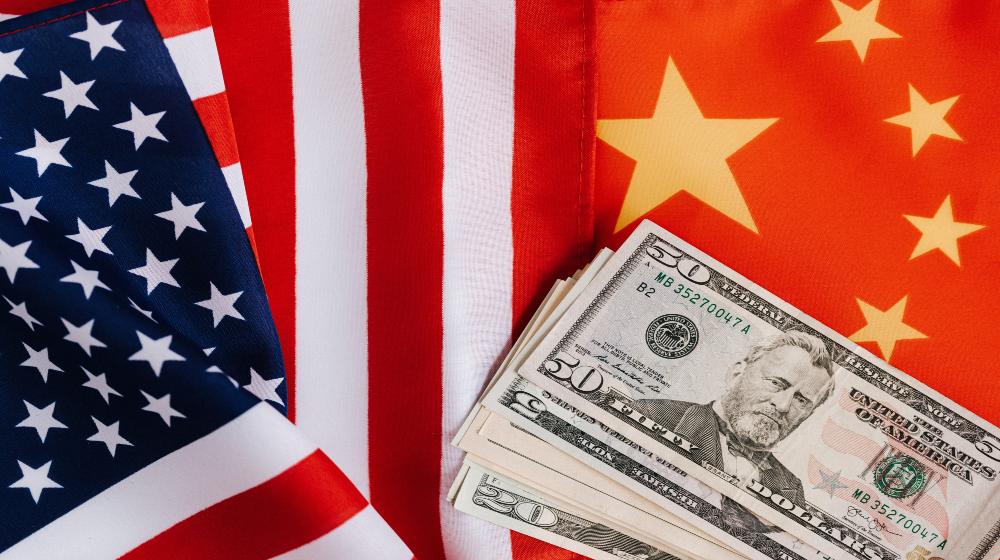News
PPP Bailout Money

Chinese firms got millions of PPP bailout money. The Paycheck Protection Program (PPP) provided relief for struggling small American businesses. With a $660 billion fund, help came to those who needed it, and it also arrived at some unintended recipients. Somehow, millions of dollars of forgivable loans went to Chinese-owned companies.
PPP Bailout Money | Chinese Firms Got Millions in Coronavirus
Consulting firm Horizon Advisory reviewed available PPP reports and found some interesting data. According to them, around 125 Chinese firms received between $192 to $419 million in PPP loans. The firms are either Chinese-owned or invested in Chinese financing. Among the borrowers were 32 companies that received more than $1 million each.
Small Business Relief
With a $2.2 trillion fund, the PPP provided loans to eligible firms during the pandemic. To qualify, firms must be small businesses with fewer than 500 employers. If they used 60% of the money for payroll, with some for rent and overhead, the loan becomes a grant instead. A program this big and well-funded will attract a lot of attention. Publicly traded firms applied and got approval for loans. As these companies got called out, many returned the money.
With the rules open for some interpretation, the PPP may have allowed some loopholes. Among the gaps was allowing American subsidies of foreign companies to apply.
Horizon Advisory co-founders Emily de La Bruyère and Nathan Picarsic noted the PPP's lack of safeguards. They said that the “extent and nature of P.R.C.-owned, -invested and -connected entities among the P.P.P. loan recipients indicate that without appropriate policy guardrails, U.S. tax dollars intended for relief, recovery and growth of the U.S. economy — and small businesses in particular — risk supporting foreign competitors, namely China.”
Previously: PPP Recipients Revealed, 51 Million Jobs Saved
Chinese Companies
Companies that availed of the bailout include Continental Aerospace Technologies and Aviage Systems. Both are part of the Chinese military conglomerate Aviation Industry Corporation of China. CAT received $10 million in loans, while Aviage got $350,000.
HNA Group's US subsidiaries HNA Group North America LLC and HNA Training Center NY got $1 million each. HNA Group is a Fortune Global 500 that deals in real estate, aviation, and financing.
Another one is BGI Americas Corporation, a subsidiary of China's gene-testing BGI Group. When called out, BGIAC returned the money.
Biotech firm Dendreon Pharmaceuticals received a loan worth $5 million to $10 million. Its parent company, Nanjing Xinbai, is a state-invested company with ties to the CCP. These are the same organizations that President accuses of stealing intellectual property.
Mobile payment firm Citcon USA LLC received $150,000 to $350,000 in loan money. Its major investor, ZhenFund has ties to Alipay and WeChat, which are also targeted by Trump.
Fixing The PPP Bailout Money Loopholes
Horizon Advisory acknowledges that loans to Chinese companies saved American jobs. Butt, they also noted that these companies may have access to other sources of capital.
With the pandemic still wreaking havoc in the US, Congress is working on a second relief package. Republican lawmakers have submitted a provision that limits Chinese participation in future bailouts. Businesses owned in part or full by Chinese companies are not allowed to apply for loans. The same applies to companies with a Chinese resident on the board of directors.
Chinese companies receiving American tax dollars to continue operating on US soil? Companies owned by the same group of people accused by the President of stealing IP? The same country the President blames for the origin of the virus currently damaging the US? The irony is thick in this situation. The already shaky Sino-US relationship is facing yet another test.
Watch this video about the PPP Bailout Money:
Do you agree that PPP and other relief efforts should exclude Chinese companies? After all, they opened American offices and hired Americans during a global pandemic. Then again, they seem to operate under their own rules, and China is a US rival and competitor. Share what you think by leaving your comments below!















